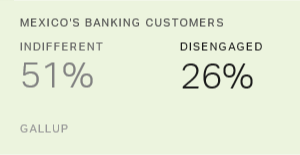The aftermath of Hurricane Katrina exposed that many local, state, and federal agencies are not adequately prepared for such a significant natural disaster. A new Experian/Gallup Personal Credit Index poll* shows that, when it comes to being financially prepared for a disaster, the same may be true of many individual Americans. Although most Americans have basic emergency supplies readily available, only half have any emergency funds set aside.
Emergency Supplies
About 9 in 10 Americans say they have food, flashlights, and batteries available in case of an emergency. About three in four have bottled water, a portable radio, and a first-aid kit. Roughly half report having gasoline and 4 in 10 say they have an emergency meeting place designated for their families.
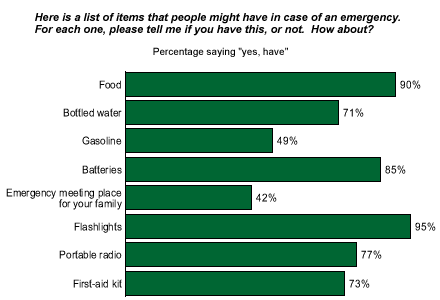
Emergency Funds
While two in three Americans say they have their credit card numbers, bank account numbers, and other financial information together in one place, only 51% say they have an "emergency fund" in case a disaster causes all their income to suddenly stop. Only about 4 in 10 Americans say they actually have cash on hand in case of an emergency. And only about 10% say they have $1,000 in cash available in case of an emergency.
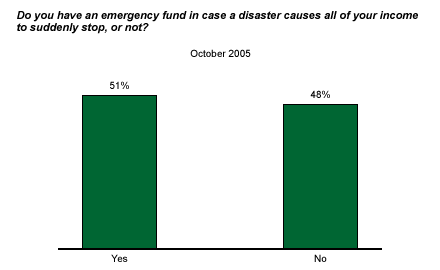
Sources of Emergency Money
Three in four consumers say they would use their savings account as a money source in case of an emergency. Fifty-six percent say they would use credit cards and 50% would borrow from a relative. Thirty-nine percent say they would use their 401k retirement account and 37% say they would use their home equity account.
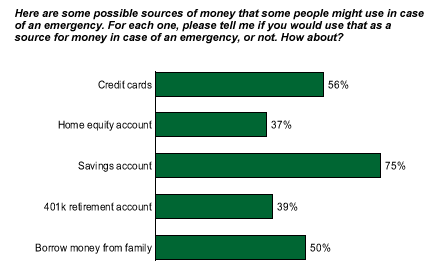
Do Americans Feel Prepared?
Only 15% of Americans say they feel "very prepared" for a Katrina-like disaster. Another 43% say they feel "somewhat prepared," while 18% say they are "not too prepared" and 23% say they are "not prepared at all."
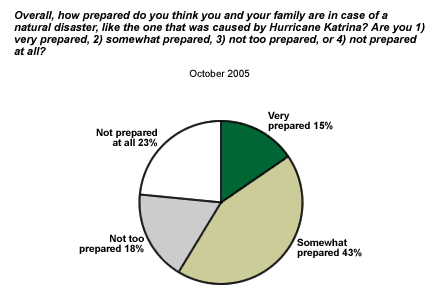
Bottom Line
One lesson every American should take from the Katrina experience is that every individual U.S. household needs to be prepared in case of a major natural disaster or terrorist event. Having adequate storm supplies and a preplanned family meeting place are important -- but just as importantly, Americans need to be financially prepared. Financial records should not only be in one place, but easily portable in case of emergency. Families should also have some cash on hand.
During Katrina, power outages shut down ATMs, bank branches, and similar sources of cash -- and while banks are required to have disaster plans in place, this does not mean that their systems will not be interrupted temporarily. Just as important a consideration is that a major disaster can shut down entire businesses, meaning that many employees could see their incomes come to a sudden stop.
Many Americans may feel that their chances of being directly affected by a major natural or terrorist-related disaster is small -- therefore preparing for such an eventuality, though a good idea, is not a necessity. But one need only look at the plight of so many Katrina survivors to realize that unexpected disasters can affect the lives of millions, and that complete dependence on any government agency -- local, state, or federal -- in case of such an emergency can be disastrous.
*Results for the survey are based on telephone interviews with 1,001 adults, aged 18 and older, conducted Sept. 20-26, 2005. For results based on the sample, one can say with 95% confidence that the maximum margin of sampling error is ±3 percentage points.
